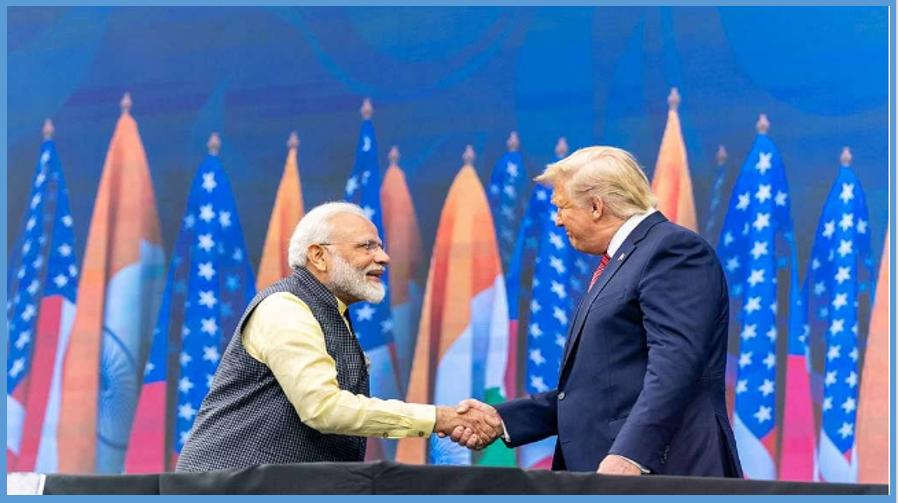Washington, D.C. — U.S. President Donald Trump has signaled that a trade deal with India is nearing completion, with expectations of significantly reduced tariffs and improved bilateral market access.
“I think we are going to have a deal with India. And that is going to be a different kind of a deal. It is going to be a deal where we are able to go in and compete,” Trump said on Tuesday. “Right now, India does not accept anybody in. I think India is going to do that, and if they do that, we are going to have a deal for much less tariffs.”
His remarks come amid accelerated negotiations between the two countries ahead of a July 9 deadline marking the end of a 90-day suspension on reciprocal tariffs. Failure to reach a deal would trigger the automatic reimplementation of 26% tariffs on key goods—a measure first introduced under Trump’s earlier term and paused temporarily to facilitate discussions.
India’s negotiating team, led by Chief Trade Negotiator Rajesh Agrawal, has extended its stay in Washington as both sides work to resolve differences, particularly over agricultural market access. Talks originally scheduled for two days were extended after limited progress was made.
Indian officials have taken a firm stance on protecting the country’s sensitive agriculture sector, which is dominated by smallholder farmers. India has consistently avoided opening its dairy market in past trade agreements and remains reluctant to reverse that position despite U.S. requests.
The United States is pressing for lower tariffs on agricultural exports such as apples, tree nuts, and genetically modified crops. India, in turn, is seeking greater access for its labour-intensive exports including textiles, garments, gems and jewellery, leather goods, and agricultural items such as shrimp, oilseeds, grapes, and bananas.
While the focus remains on avoiding tariff re-escalation, both nations continue to work toward a broader Bilateral Trade Agreement (BTA), with the first phase expected to be completed by fall 2024. The long-term ambition is to increase bilateral trade from the current $191 billion to $500 billion by 2030.
The outcome of the talks is likely to shape not only economic relations between the two countries but also broader trade alignments as global supply chains undergo realignment.



